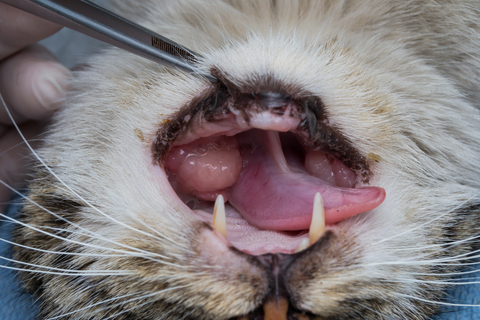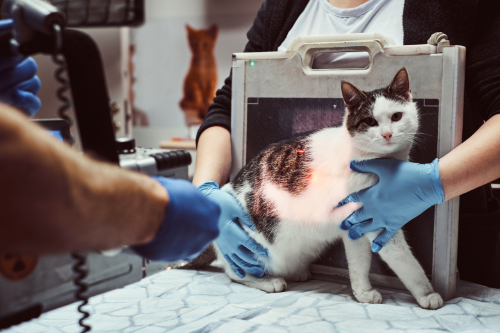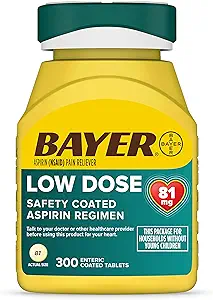What do we mean by a growth on your cat's gums?
In fact, a growth on a cat’s gums is pretty rare. Fortunately, because it is hardly ever good news for both the cat and the owner. In the vast majority of cases, this is a form of cancer that we also call “oral squamous cell carcinoma”. A lump in the form of epulides, such as those that occur in dogs, are even less common in cats than this form of cancer that we are talking about here.
What is an Oral Squamous Cell Carcinoma?
It’s a form of cancer. The cells of the outer layer of the (in this case gum) mucosa multiply uncontrollably. Normally, cells are formed to replace other cells. Once there are enough cells, cell division is stopped. But this is not the case with cancer. Cell division continues unabated. In this way, a proliferation of tissue is created, with the result that you will see a growth on your cat’s gums.
The nasty thing about this form of cancer, however, is that it will grow through healthy tissue. That normal tissue will then be destroyed. A wound-like appearance develops on the growth on your cat’s gums and this is an easy entryway for bacteria. An infection almost always arises in this cancer. More pain and more problems with eating are the result for your cat.

What are the symptoms of a growth on your cat's gums?
Characteristically, this mainly occurs in old adult cats. So let’s say from the age of about ten years. Although there have also been cases of much younger cats.
Initially, you may see subtle symptoms in your cat such as pain in its mouth and drooling. Later, when the cancer has already grown, you can also see an abnormal shape of his jaws externally. Especially at the site of the cancer. Teeth will also become loose and fall out. In addition, they will lose weight quite quickly. This is both because your cat has pain when eating and will therefore eat less. But also because the growth on your cat’s gums takes a lot of energy and so your cat will lose weight to meet that energy requirement.
The diagnosis of a growth on your cat's gums
There is only one way to establish the diagnosis with certainty. And that’s by taking some cells or even an entire piece of tissue from the growth on your cat’s gums. Since this growth is in your cat’s mouth and it hurts a bit to take some cells from this growth, we almost always do this under anesthesia.
The collected cells or piece of tissue is sent to a laboratory where they can examine tissue. Here they will be able to identify what the growth on your cat’s gums is. The results of the examination will be discussed with you by your vet. In the case of oral squamous cell carcinoma, it is advisable to also have X-rays of the lungs made and to have the lymph nodes of that region examined. There is a chance that the cancer has spread, although that does not happen very quickly whit this oral cancer. But you want to know for sure before you decide to treat. If there are metastases, treatment makes even less sense.

Treatment of an oral squamous cell carcinoma
In most cases, this cancer is not noticed until quite late. The cancer is then well advanced and already covers a large part of the mouth. This is because the cancer can and will grow through other tissues of the mouth. In the vast majority of cases, treatment is unfortunately no longer possible and the owner opts for euthanasia in the short term due to the amount of pain for your cat.
But if you catch it early or really want to try a treatment for your cat, there are options. A treatment is expensive and very intensive for your cat, but it may be worth trying. For example, we are thinking of amputation of (part of) the jaw, radiation, chemotherapy, burning away the cancer or freezing the cancer resulting in the death of the cancer. None of them have an ideal outcome and none of them have a high chance of success. Only about 1 in 10 cats recover from the cancer and are still alive a year later.
What does the future hold for your cat with a growth on its gums?
When there is a squamous cell carcinoma, his future unfortunately looks very bad for him. As mentioned, this cancer is capable of growing through all tissues. There are painful inflammations, loss of teeth or molars, and the inability to move his tongue. And you need your tongue to swallow your food. On average, cats live 1.5 to 3 months after diagnosis. This mainly depends on how far advanced the cancer is and therefore how much trouble your cat is already suffering from that growth on its gums.
If your cat has the option and you whish to fight the growth on the gums in your cat, the chance of recovering from the cancer is about 10%. However, there is no tissue left in the mouth, where the cancer was. In other words, there is often a cavity where the cancer used to be that can easily collect food, hair and dirt. As a result, infections occur very regularly. That is why, as a veterinarian, we are usually not very proactive in advising owners to start the treatment process. As sad as that is.
If you think your cat is still to good to euthanize you at least need to give him painkillers. The best ones are the painkillers your veterinarian can prescribe to your cat. But otherwise you can use aspirin 81mg. You can give your cat a half of a tablet every two days. Do not give him anything else than aspirin since that is lethal to your cat!!!
Hopefully your cat does not have a growth on his gums. But if he does, go to see your veterinarian as soon as you can. Good luck!

